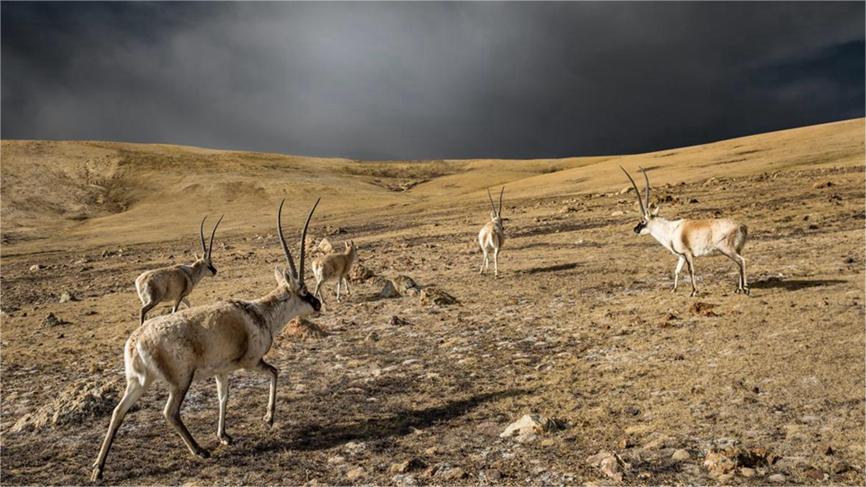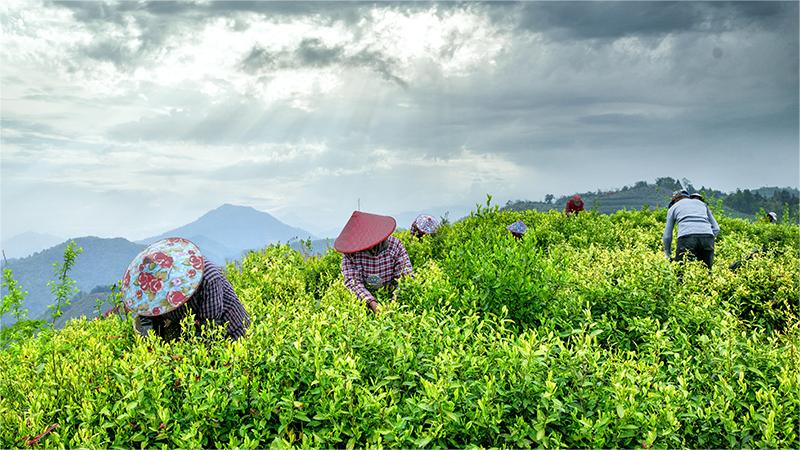Continuous ecological efforts protect picturesque Lijiang River
NANNING, April 25 (Xinhua) -- It is not dawn yet, but Zheng Yongming and his colleagues are already on patrol on Mao'er Mountain, where the lowest temperature in April is around 10 degrees Celsius.
Zheng, head of the Mao'er Mountain police station in Xing'an County of the city of Guilin, south China's Guangxi Zhuang Autonomous Region, has been doing this work for 16 years. Zheng and his colleagues conduct their long-range patrols, lasting over 10 hours, once or twice a month, while they do short-range patrols almost every day.
Their main tasks include preventing people from trespassing in the protected area, preventing fires and poaching, and observing and recording the growth of flora and fauna.
The area they have been protecting for so many years, Mao'er Mountain Natural Reserve, is where the Lijiang River originates. Aside from a unique landscape very appealing for tourism, featuring clean flows of water between scenic karst mountains, the Lijiang River basin is also an important water conservation area for the Pearl River system and a crucial part of the ecological barrier in southern China.
After more than 40 years of development, 13 conservation stations have been established in the reserve. With a comprehensive ecological protection system, the forest coverage rate in the reserve has reached 98.03 percent, and it is home to 6,672 species of flora and fauna.
"Only by ensuring a stable source environment can we guarantee the stability of the ecosystem, thereby better fulfilling ecological functions. This is crucial for the ecological security of the entire Lijiang River," said Li Xiankun, researcher at the Guangxi Institute of Botany under the Chinese Academy of Sciences.
In recent years, Guilin has implemented more than 30 major projects in the Lijiang River basin, such as integrated protection and restoration efforts that cover mountains, rivers, forests and lakes to address disorder and water pollution. Ten tributaries of the river have undergone centralized pollution interception and treatment, with sewage treatment facilities established in all towns along the banks.
"A few years ago, there were still people doing electro-fishing and setting cage nets to catch fish, but now they are all gone. The water quality has also improved a lot compared to previous years," said Yao Meihua, a local resident of Xiangli Township, which is located in a county where the river passes through, reflecting on its beauty and orderliness after the successful implementation of regulated management.
The river flows southward, passing through Yangshuo County in Guilin, and in the process presents a series of picturesque scenes. Tourists flock to this scenic area and pose for photos with the mountains in the background, while bamboo rafts carry passengers back and forth on the river.
Electric-powered sightseeing rafts were officially put into operation in 2023. This development has yielded positive results by improving both the visitor experience and environmental protection, according to Huang Jinfeng, deputy general manager of the company managing the Lijiang River scenic area.
Liao Xuelin, a raft worker in the scenic area, grew up along the Lijiang River and has witnessed the area's development and management process, and nearly every household in his village relies on tourism for a living.
Transforming ecological protection into ecological dividends and making good use of scenery resources is the ultimate goal of ecological conservation. Yangshuo County has established an ecological compensation mechanism, using 10 percent of the annual income from the Lijiang River and Yulong River scenic areas as ecological compensation fees for villages nearby, thereby benefiting over 70,000 people on both banks and boosting annual income by approximately 120 million yuan (about 16.6 million U.S. dollars).
"I'm 36 years old this year, but I still lie on the boat and admire the mountains and water, just like I did when I was a child. This is nature's treasure, and we all cherish it," said Liao.
Photos
Related Stories
- China restores 6.7 mln ha of land in ecological remediation drive
- Power linemen as determined swan guardians
- Grassroots lawmaker uses technology to empower eco-agriculture
- Tech innovations enhance wildlife conservation on "roof of the world"
- Wuhu City in E China makes efforts to restore ecological environment of Yangtze River
Copyright © 2024 People's Daily Online. All Rights Reserved.









